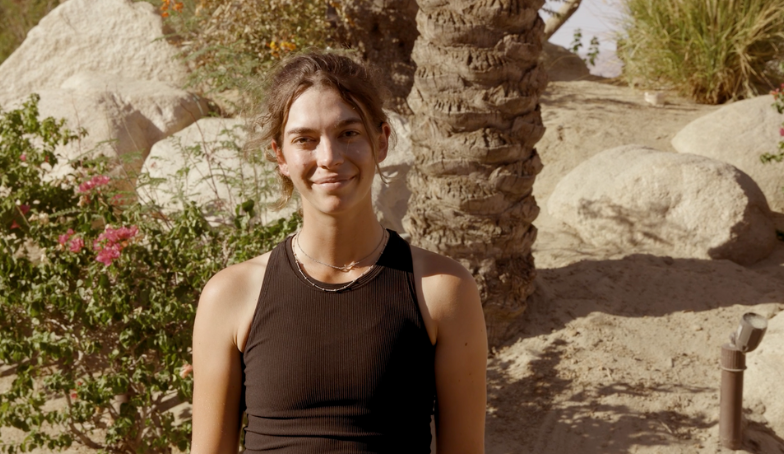Golf isn’t just a sport or career for pro golfer Alison Crenshaw. The 25-year-old sees it first and foremost as a “platform” to “display the gifts and the talents” she’s been given.
Crenshaw doesn’t take that platform lightly, because she knows firsthand how much work and sacrifice female athletes have to put into their sport to succeed.
“We spend our time out on the golf course at the range practicing. We’ve made decisions to not go on trips with friends or to not go on family vacations,” she told IWFeatures. “We have given up so much of just what people would call your day-to-day life experiences just to give ourselves the best chance and advantage we can to keep going with the sport we love.”
Crenshaw started golfing when she was in middle school after her dad introduced her and her brother to the sport, and “the rest was history,” she said.
The young athlete went on to golf at the University of Georgia, where she graduated in 2022. Just this year, she was asked to return to the school as an assistant coach for UGA’s women’s golf team, where she gets to “pour into and love on some of the most incredible young women as they navigate their golf journeys.”
Crenshaw has also been competing professionally for the past few years and hopes to one day earn a spot on the Ladies Professional Golf Association (LPGA) Tour. She was one of more than 300 pro female golfers this summer who competed in the LPGA’s Qualifying School (Q-School) with the hopes of qualifying for the tour.
However, the LPGA’s policy allowing trans-identified males who have undergone wrong-sex hormone therapy and surgery to compete in the women’s division has created yet another barrier for female golfers such as Crenshaw. At this year’s Q-School, Crenshaw and the other female golfers were forced to compete against Hailey Davidson, a trans-identified male who previously has won women’s events.
This policy has not only resulted in unfair competition for the female golfers who have made countless sacrifices to play professionally; it has also undermined the very purpose of the LPGA, Crenshaw argued.
“The LPGA was created by these amazing women in Wichita, Kansas, to give females the ability to play the game of golf. They didn’t have that,” she said. “The men had their league, but the ladies didn’t have a platform to play on. Any deviation to strip that away from females means you are taking away the opportunity that so many women and founders before us fought to give us.”
Crenshaw is one of more than 275 pro female golfers urging the LPGA to change its participation policy and clarify that women’s golf is for females only. With the LPGA set to release its new guidance this month, Crenshaw said the LPGA has the opportunity to prove its “dedication and commitment” to female golfers.
“No one I’ve spoken to is OK with the lack of protection in the rules for female athletes,” she said. “Biological males should not be allowed to compete and take away opportunities from biological females. The biggest tours in women’s golf need to stand up for their own players.”
This is also an opportunity for the LPGA to stand up for biological reality, Crenshaw added.
“We are not here to say who can put a bow in their hair. But the world needs to understand that the bow does not determine what division you are allowed to compete in. It’s your biological, unchangeable, birth-given ability that is the standard for separation.”
Crenshaw said her work at UGA with younger female athletes is a big part of why she felt compelled to speak out.
“I’m not only standing up for myself and my friends currently on tour. I’m standing up for the future of my players,” she said.
And she has no intention of backing down.
“This movement was born because there have been numerous incidents where female athletes have had their hard work and potential stolen from them because male athletes were allowed to compete in the female division,” Crenshaw said. “It’s wrong, it’s cheating, and female athletes deserve to have their rights as athletes fought for.”









